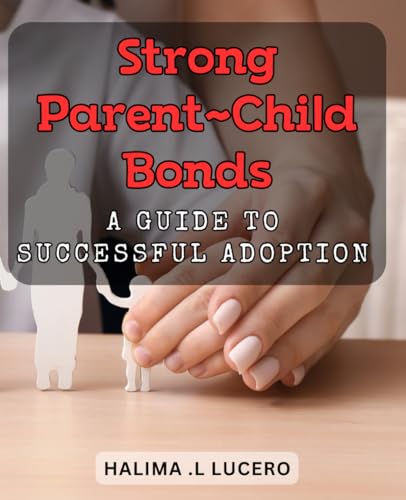Understanding the Foundations of Strong Relationships
Establishing a strong parent-child bond is essential for the overall well-being of children. At the core of such relationships lie three vital elements: trust, communication, and mutual respect. These components not only shape the dynamic between parents and children but also significantly influence their emotional and social development.
Trust is key to any relationship. When children feel secure with their parents, they express themselves openly. Parenting strategies for a healthy relationship prioritize transparency and honesty, allowing children to foster a sense of reliability in their interactions with their parents.
Effective communication is equally important in strengthening family connections. It goes beyond merely talking with one another; it includes active listening and understanding. Parents should encourage open dialogue, allowing children to share concerns and thoughts without fear of judgment. Tips for building trust with kids often involve asking questions, validating their feelings, and engaging in conversations that promote mutual understanding. This approach contributes to healthy emotional development, allowing children to navigate their social environments better.
Mutual respect forms the final element in this trio. Respecting a child’s individuality and opinions helps establish a supportive environment. Parents who model positive parenting techniques demonstrate appreciation for their child’s perspective, leading to improved relationships. This practice encourages children to express themselves confidently, knowing their thoughts are valued. By fostering these foundational aspects, parents enhance their emotional connection with children and promote a nurturing atmosphere.
In conclusion, understanding these foundational elements is crucial for parents looking to develop a strong and nurturing relationship with their children. By focusing on trust, effective communication, and mutual respect, parents can create a haven for their children, fostering emotional growth and resilience.
Effective Communication Strategies for Parents
Effective communication is crucial for nurturing a strong parent-child bond, as it lays the foundation for trust and mutual understanding. One key strategy is active listening, which involves giving your child your full attention when they speak. You demonstrate that you value their thoughts and feelings by maintaining eye contact, nodding, and responding appropriately. This practice fosters a sense of security and encourages them to express themselves more openly.
Age-appropriate conversations are another vital aspect of improving communication with children. Tailoring your discussions according to their developmental stage ensures that your messages are comprehensible and relatable. For younger children, use simple language and concrete examples, while older children and teenagers may respond better to more complex topics. This adaptability allows you to engage effectively and strengthens the parent-child relationship.

Incorporating open-ended questions is an effective technique for promoting dialogue and facilitating emotional connectivity. Instead of asking questions that elicit yes or no responses, pose questions such as, “What was the best part of your day?” or “How did you feel when that happened?” This approach encourages children to elaborate on their thoughts and emotions, fostering a deeper understanding between parents and kids.
Non-verbal communication also holds significant weight in parent-child interactions. Your tone of voice, facial expressions, and body language convey emotions and attitudes that may reinforce or contradict your verbal messages. Being mindful of these non-verbal cues can enhance effective communication and strengthen emotional connections with children.
Maintaining an open dialogue about feelings and experiences allows parents to offer parenting advice and strategies for a healthy relationship. Sharing personal experiences can initiate meaningful conversations, helping children learn valuable lessons and feel understood. By embracing these effective communication strategies, parents can greatly improve their relationship with their children, ultimately leading to stronger family connections.
The Role of Quality Time in Strengthening Bonds
Quality time is an essential component in building a strong parent-child bond. Engaging in regular, enjoyable interactions fosters a deeper emotional connection, which is crucial for effective communication with kids and nurturing trust. Activities such as family dinners, outdoor adventures, and creative projects not only create cherished memories but also reinforce the idea of family unity and support.
One of the most impactful ways to strengthen the parent-child relationship is through shared experiences. Family dinners, for example, provide an opportunity to discuss daily experiences, share thoughts and feelings, and celebrate small achievements. This simple act of gathering around the table promotes an emotional connection with children, where they feel heard and valued.
Outdoor adventures, such as hiking, biking, or picnicking, can also contribute significantly to a child’s sense of belonging and security. Engaging in physical activities creates lasting bonds and teaches important life skills, such as teamwork and resilience. Moreover, these experiences can serve as effective parenting strategies for a healthy relationship, allowing parents to model behavior while connecting on a personal level.

Creative activities like crafting or cooking build trust and boost children’s self-esteem by encouraging their input. Prioritize family time with regular activities, like weekly game nights or seasonal outings.
In conclusion, investing time in these activities not only improves relationships with children but also cultivates positive parenting techniques that foster emotional development. By making quality time a priority, parents can cultivate a nurturing environment that promotes strong family connections, ensuring that each child’s needs are met with love and support.
Navigating Challenges and Conflict Resolution
Parent-child relationships are naturally dynamic, often characterized by moments of disagreement and misunderstanding. To foster a strong parent-child bond, it is essential to navigate these challenges effectively. These conflicts can arise from differing perspectives, emotional responses, or simply the developmental stages of children. Addressing these misunderstandings promptly and positively lays the groundwork for building trust with children.
One effective strategy for conflict resolution is to maintain a calm demeanor. When parents remain composed during disagreements, they set an example for their children on how to manage emotions. This emotional regulation not only strengthens the parent-child relationship but also equips children with the skills necessary for navigating their conflicts in the future. Active listening and finding common ground are also pivotal steps in resolving disputes. By validating their children’s feelings, parents can better understand their perspectives, which fosters an emotional connection with children.
- Games include: Are You a Bully? Sharks, Jellyfish, Turtles, Compromise Burgers, Persuasion Pot, Keep Calm Meter, A Spinn…
- The set includes a number of different game styles such as snakes and ladders, puzzles and matching games, and sorting g…
- Includes a Keep Calm Thermometer which can be used as an interactive and visual tool to communicate different feelings.
Employing structured problem-solving techniques encourages children to participate constructively in conflict resolution. Encourage your children to express their feelings and thoughts openly and support them in brainstorming solutions. This practice provides parenting strategies for a healthy relationship and allows children to learn how to connect with their parents through effective communication. As children witness their parents employing positive parenting techniques to resolve conflicts, they are more likely to replicate these behaviors in their interactions with peers and family members.
Moreover, teaching children how to handle conflicts constructively can contribute significantly to strengthening family connections. By role-modeling these behaviors, parents illustrate the importance of open dialogue and negotiation in maintaining relationships. In conclusion, by navigating challenges and employing sound conflict resolution techniques, parents can turn disagreements into valuable learning opportunities, ultimately improving their relationship with children and fostering lasting emotional bonds.


















